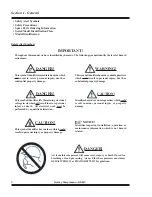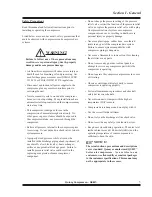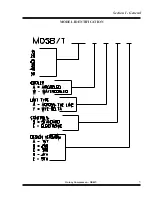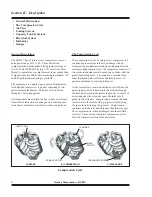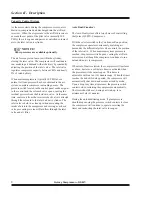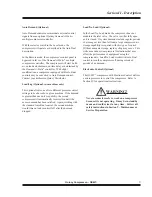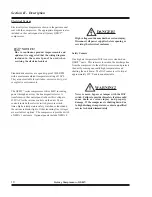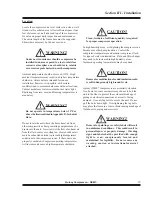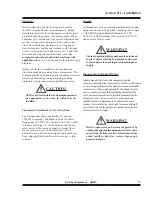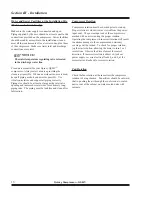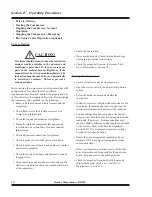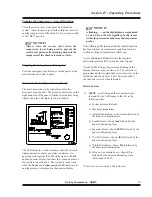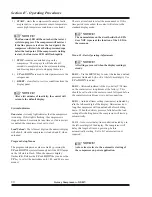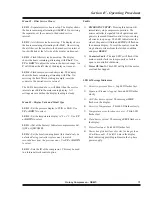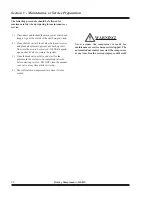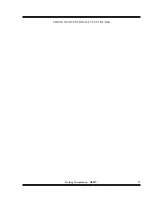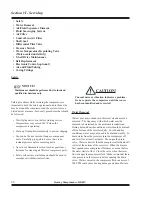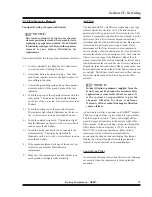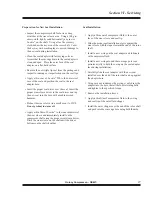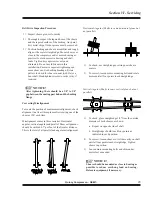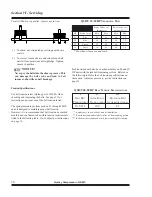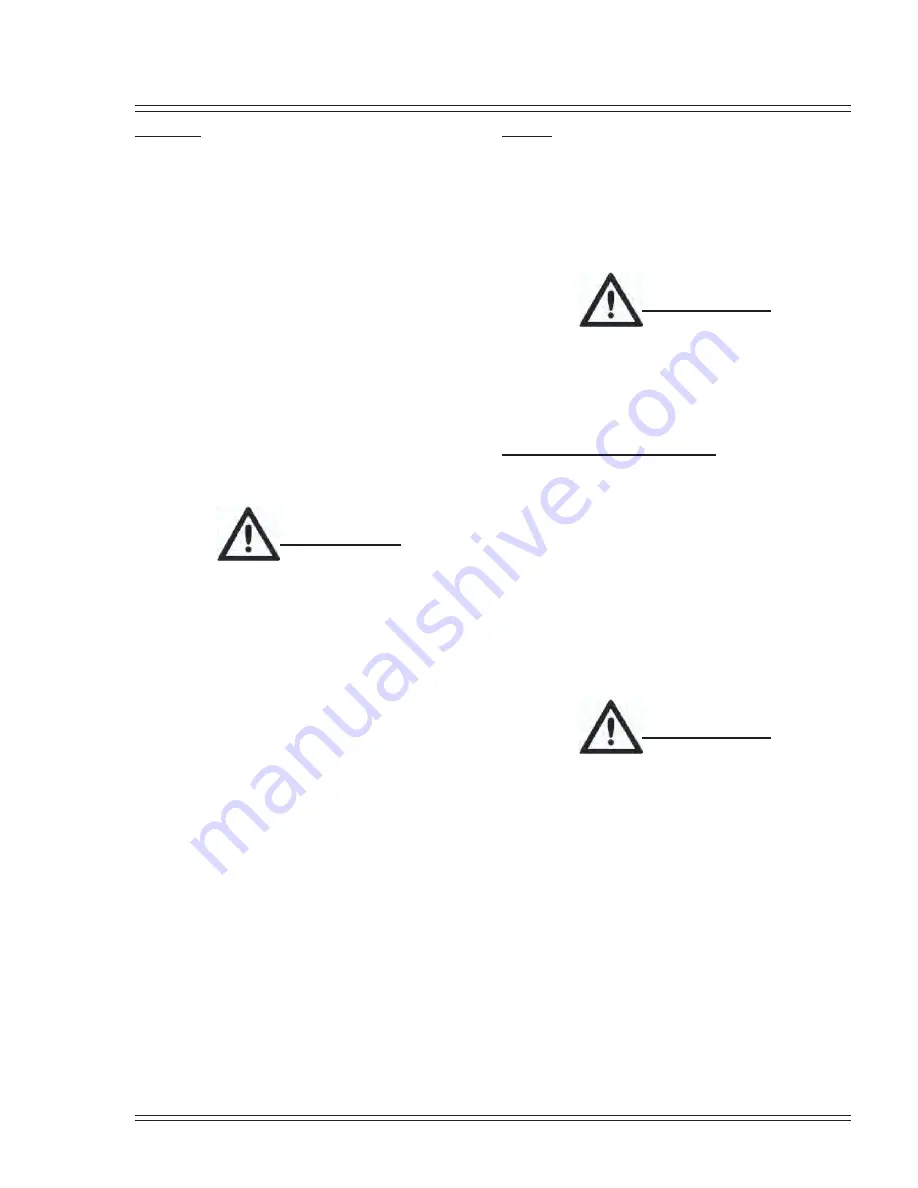
Section III - Installation
Quincy Compressor
®
- QSB/T
™
15
Electrical
Before installation, the electrical supply should be
checked for adequate wire size and capacity. During
installation, a suitable fused disconnect switch or circuit
breaker should be provided. Any unreasonable voltage
unbalance (5%) between the legs must be eliminated and
any low voltage corrected to prevent excessive current
draw. The installation, electric motor, wiring and all
electrical controls must be in accordance with National
Electric Code, and all state and local codes. A qualified
electrician should perform all electrical work.
Air
compressors must be grounded in accordance with
applicable codes.
See control panel for the proper wiring
diagram.
Quincy would like to emphasize the importance of
providing adequate grounding for air compressors. The
common practice of grounding units to building structural
steel may not actually provide adequate grounding
protection, as paint and corrosion buildup may exist.
CAUTION!
NEMA electrical enclosures and components must
be appropriate to the area in which they are
installed.
Pneumatic Circuit Breakers or Velocity Fuses
The Occupational Safety and Health Act, Section
1926.303 Paragraph 7 published in Code of Federal
Regulations 29 CFR 1920.1 (revised 07/01/1982), states
“all hoses exceeding 1/2” inside diameter shall have a
safety device at the source of supply or branch line to
reduce pressure in case of a hose failure.” These
pneumatic safety devices are designed to prevent hoses
from whipping, which could result in a serious or fatal
accident.
Guards
All mechanical action or motion is hazardous in varying
degrees and needs to be guarded. Guarding shall comply
with OSHA Safety and Health Standards 29 CFR
1910.219 in OSHA manual 2206 (revised 11/07/1978)
and any state or local codes.
WARNING!
Cabinet panels and drive guards must be fastened
in place before starting the machine and never
removed before lock out/tag out of the main power
supply.
Manual Vent and Shutoff Valve
Install a manual valve to vent the compressor and the
compressor discharge line to atmosphere. If the air receiver tank
services a single compressor, the manual valve can be installed
in the receiver. When a manual shutoff valve (block valve) is
used, a manual valve should be installed upstream from the
valve, and a pressure relief valve installed upstream from the
manual vent valve. These valves are to be designed and
installed to permit maintenance to be performed in a safe
manner. Never substitute a check valve for a manual shutoff
valve (block valve) if the purpose is to isolate the compressor
from a system for servicing.
WARNING!
Relieve compressor and system air pressure by
opening the appropriate manual relief valve prior
to servicing. Failure to relieve all system pressure
could result in death or serious injury and
property damage.
Summary of Contents for QSB Series
Page 2: ......
Page 9: ...Section I General Quincy Compressor QSB T 5 MODEL IDENTIFICATION...
Page 21: ...Quincy Compressor QSB T 17 THIS PAGE INTENTIONALLY LEFT BLANK...
Page 27: ...Quincy Compressor QSB T 23 THIS PAGE INTENTIONALLY LEFT BLANK...
Page 71: ...Quincy Compressor QSB T 67 THIS PAGE INTENTIONALLY LEFT BLANK...
Page 72: ...Appendix A Dimensional Drawings 68 Quincy Compressor QSB T QSB 15 50 HP air cooled...
Page 73: ...Appendix A Dimensional Drawings Quincy Compressor QSB T 69 QSB 15 50 HP water cooled...


